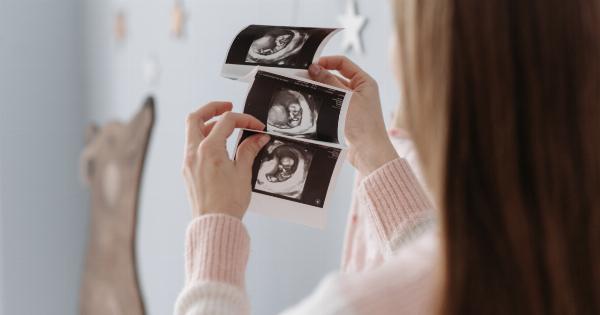Pregnancy is an important time in a woman’s life. It is a time of great joy and excitement as well as a period of great responsibility. There are several important factors to consider during pregnancy to ensure a safe and healthy delivery.
One of the concerns that many pregnant women and their partners have is whether sexual activity during pregnancy can lead to preterm labor, which is defined as giving birth before the 37th week of pregnancy.
What is preterm labor?
Preterm labor is defined as labor that starts before the 37th week of pregnancy. It can lead to premature birth, which can cause serious health problems for the baby.
Preterm labor can be caused by several factors such as infections, inflammation, stress, and hormonal changes. In some cases, the cause of preterm labor is unknown.
Preterm labor is more likely to occur in women who have a history of preterm labor, are carrying multiple babies, have certain health conditions, or have experienced physical trauma during pregnancy.
What causes preterm labor?
The exact cause of preterm labor is not always known. However, there are several risk factors that can increase the likelihood of preterm labor. These factors include:.
- Pregnancy with multiples
- Overdue pregnancy
- Previous preterm labor or premature birth
- Chronic health conditions such as high blood pressure, diabetes, or kidney diseases
- Infections such as urinary tract infections, vaginal infections, or sexually transmitted infections
- Smoking, drinking alcohol, or using illicit drugs during pregnancy
- Physical trauma or stress during pregnancy
Sexual activity during pregnancy
One of the concerns that pregnant women and their partners may have is whether sexual activity during pregnancy can lead to preterm labor.
The good news is that in most cases, sexual activity during pregnancy is safe and does not increase the risk of preterm labor. However, there are some exceptions to this.
When is sexual activity during pregnancy not safe?
Sexual activity during pregnancy may not be safe in certain circumstances such as:.
- If there is a risk of preterm labor: If you have a history of preterm labor, or if your healthcare provider has identified certain risk factors that increase your chance of preterm labor, you may be advised to avoid sexual activity.
- If you have placenta previa: Placenta previa is a condition where the placenta implants low in the uterus and covers part or all of the cervix. This condition can cause bleeding, especially after sexual activity, and can lead to preterm labor.
- If you have a cervical incompetence: Cervical incompetence is a condition where the cervix is weak and opens too early, leading to preterm labor. Sexual activity during pregnancy can increase the risk of this happening.
- If your water has broken: If your water has broken, sexual activity during pregnancy can increase the risk of infection.
Benefits of sexual activity during pregnancy
Sexual activity during pregnancy can have several benefits, including:.
- Stress relief: Pregnancy can be a stressful time, and sexual activity can help relieve some of the stress and tension.
- Bonding with your partner: Sexual activity allows you to connect with your partner and maintain intimacy during a time of physical and emotional change.
- Improved sleep: Sexual activity can help you sleep better and feel more relaxed.
- Improved blood flow: Sexual activity increases blood flow to the uterus, which can help your baby get the oxygen and nutrients it needs to grow and develop.
- Reduced risk of preeclampsia: Preeclampsia is a complication of pregnancy characterized by high blood pressure and damage to organs. Studies have shown that regular sexual activity during pregnancy can reduce the risk of developing preeclampsia.
When to consult your healthcare provider
If you have any concerns about sexual activity during pregnancy, it is important to consult your healthcare provider. They can provide you with specific guidance based on your individual circumstances and medical history.
You should also consult your healthcare provider if you experience any of the following symptoms after sexual activity during pregnancy:.
- Bleeding
- Pain or cramping
- Leaking of amniotic fluid
- Change in vaginal discharge or odor
Conclusion
In most cases, sexual activity during pregnancy is safe and does not increase the risk of preterm labor.
However, there are some exceptions to this, such as if you have a history of preterm labor, placenta previa, cervical incompetence, or if your water has broken. If you have any concerns about sexual activity during pregnancy, it is important to consult your healthcare provider. They can provide you with specific guidance based on your individual circumstances and medical history.





























